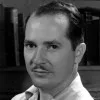ORESTES: What should we do? Should we kill our mother?
[ὈΡΈΣΤΗΣ: τί δῆτα δρῶμεν; μητέρ᾿ ἦ φονεύσομεν.]
Euripides (485?-406? BC) Greek tragic dramatist
Electra [Ἠλέκτρα], l. 966ff (c. 420 BC) [tr. @sentantiq (2020)]
(Source)
The answer from Electra, of course, is yes -- Clytemnestra is to be killed for her role in the murder of her late husband (and Electra and Oresthes' father), Agamemnon. They have already killed the other responsible party, her next husband, Aegisthus.
(Source (Greek)). Alternate translations:What now remains
For us to do, shall we with ruthless steel
Pierce the maternal breast?
[tr. Wodhull (1809)]What are we going to do? Shall we kill our mother?
[tr. Coleridge (1891)]What then shall we do? shall we murder our mother?
[tr. Buckley (1892)]What shall we do? -- our mother shall we slay?
[tr. Way (1896)]What would we with our mother? Didst thou say
Kill her?
[tr. Murray (1905)]What must we do to our mother? Slay her?
[tr. Coleridge (1938 ed.)]What shall we do then? Slaughter our mother?
[tr. Theodoridis (2006)]What are we going to do?
Kill our mother?
[tr. Johnston (2009)]What shall we do? Can we really kill our mother?
[tr. Wilson (2016)]
Quotations about:
murder
Note not all quotations have been tagged, so Search may find additional quotes on this topic.
Have no fear of robbers or murderers. They are external dangers, petty dangers. We should fear ourselves. Prejudices are the real robbers; vices the real murderers. The great dangers are within us. Why worry about what threatens our heads or our purses? Let us think instead of what threatens our souls.
[Ne craignons jamais les voleurs ni les meurtriers. Ce sont là les dangers du dehors, les petits dangers. Craignons-nous nous-mêmes. Les préjugés, voilà les voleurs; les vices, voilà les meurtriers. Les grands dangers sont au dedans de nous. Qu’importe ce qui menace notre tête ou notre bourse! Ne songeons qu’à ce qui menace notre âme.]
Victor Hugo (1802-1885) French writer
Les Misérables, Part 1 “Fantine,” Book 1 “An Upright Man,” ch. 7 (1.1.7) [Bp. Myriel] (1862) [tr. Wilbour/Fahnestock/MacAfee (1987)]
(Source)
(Source (French)). Alternate translations:Have no fear of robbers or murderers. Such dangers are without, and are but petty. We should fear ourselves. Prejudices are teh real robbers; vices the real murderers. The great dangers are within us. What mater it what threatens our heads or our purses? Let us think only of what threatens our souls.
[tr. Wilbour (1862)]Never let us fear robbers or murderers. These are external and small dangers; let us fear ourselves; prejudices are the real robbers, vices the true murderers. The great dangers are within ourselves. Let us not trouble about what threatens our head or purse, and only think of what threatens our soul.
[tr. Wraxall (1862)]Let us never fear robbers nor murderers. Those are dangers from without, petty dangers. Let us fear ourselves. Prejudices are the real robbers; vices are the real murderers. The great dangers lie within ourselves. What matters it what threatens our head or our purse! Let us think only of that which threatens our soul.
[tr. Hapgood (1887)]We must never fear robbers or murderers. They are dangers from outside, small dangers. It is ourselves we have to fear. Prejudice is the real robber, and vice the real murderer. Why should we be troubled by a threat to our person or our pocket? What we have to beware of is the threat to our souls.
[tr. Denny (1976)]Never fear robbers or murderers. Thiose are dangers that come from without. Small dangers. Let us fear ourselves. Prejudices are the real robbers. Vices are the real murderers. The great dangers are within us. Never mind what endangers our life or our purse! Let's be mindful only of what endangers our soul.
[tr. Donougher (2013)]
LADY MACBETH:Come, you spirits
That tend on mortal thoughts, unsex me here,
And fill me from the crown to the toe top-full
Of direst cruelty. Make thick my blood.
Stop up th’ access and passage to remorse,
That no compunctious visitings of nature
Shake my fell purpose, nor keep peace between
Th’ effect and it. Come to my woman’s breasts
And take my milk for gall, you murd’ring ministers,
Wherever in your sightless substances
You wait on nature’s mischief. Come, thick night,
And pall thee in the dunnest smoke of hell,
That my keen knife see not the wound it makes,
Nor heaven peep through the blanket of the dark
To cry “Hold, hold!”William Shakespeare (1564-1616) English dramatist and poet
Macbeth, Act 1, sc. 5, l. 47ff (1.5.47-61) (1606)
(Source)
Maybe the purpose of this sorry and tragic error committed in my native Mississippi by two white adults on an afflicted Negro child is to prove to us whether or not we deserve to survive. Because if we in America have reached that point in our desperate culture when we must murder children, no matter for what reason or what color, we don’t deserve to survive, and probably won’t.
William Faulkner (1897-1962) American novelist
“The Art of Fiction,” Interview by Jean Stein, Paris Review #12 (Spring 1956)
(Source)
Regarding the Emmett Till murder.
Assassination is the extreme form of censorship.
George Bernard Shaw (1856-1950) British playwright and critic
The Shewing-up of Blanco Posnet, “The Rejected Statement, Part 1,” “The Limits to Toleration” (1909)
(Source)
LADY MACBETH: Out, damned spot, out, I say! One. Two. Why then, ’tis time to do ’t. Hell is murky. Fie, my lord, fie, a soldier and afeard? What need we fear who knows it, when none can call our power to account? Yet who would have thought the old man to have had so much blood in him?
William Shakespeare (1564-1616) English dramatist and poet
Macbeth, Act 5, sc. 1, l. 37ff (5.1.37-42) (1606)
(Source)
We are told by some of the Jewish Rabbins, that the first Murder was occasioned by a religious Controversy; and if we had the whole History of Zeal from the Days of Cain to our own Times, we should see it filled with so many Scenes of Slaughter and Bloodshed, as would make a wise Man very careful how he suffers himself to be actuated by such a Principle, when it only regards Matters of Opinion and Speculation.
Joseph Addison (1672-1719) English essayist, poet, statesman
Essay (1711-10-02), The Spectator, No. 185
(Source)
Fabius buries all his wives:
Chrestilla ends her husbands’ lives.
The torch which from the marriage-bed
They brandish soon attends the dead.
O Venus, link this conquering pair!
Their match will meet with issue fair,
Whereby for such a dangerous two
A single funeral will do![Effert uxores Fabius, Chrestilla maritos,
funereamque toris quassat uterque facem.
Victores committe, Venus: quos iste manebit
exitus, una duos ut Libitina ferat.]Martial (AD c.39-c.103) Spanish Roman poet, satirist, epigrammatist [Marcus Valerius Martialis]
Epigrams [Epigrammata], Book 8, epigram 43 (8.43) (AD 94) [tr. Duff (1929)]
(Source)
Original Latin. Alternate translations:Five wives hath he dispatch'd, she husbands five:
By both alike the undertakers thrive.
Venus assist! let them join hands in troth!
One common funeral, then, would serve them both.
[tr. Hay (1755)]While Tom and Dolly many mates
Do carry off ('tis said)
Each shakes by turns (so will the Fates)
The Fun'ral torch in bed.
Oh fie, ma'am, Venus, end this rout,
Commit them to the Fleet,
And grant they may be carried out,
Both buried in one sheet.
[tr. Scott (1773)]Both Fabby and Chrestil know well how to bury
A consort, and with sable torch to make merry.
Yoke, Venus, the victors; and, mutually loath,
Let one Libitana lay hold of them both.
[tr. Elphinston (1782), Book 6, Part 2, ep. 47]Fabius buries his wives, Chrestilla her husbands; each shakes a funeral torch over the nuptial couch. Unite these conquerers, Venus, and the result will then be that Libitina will carry them both off together.
[tr. Bohn's Classical (1860)]Fabius has buried all his wives;
Short are Chrestilla's husbands' lives.
And 'tis a funeral torch this pair
Do, at their nuptials, wave in air.
These conquerors, Venus, sure 'twere fit
Against each other now to pit:
So shall such end await the two,
That for them both one bier may do.
[tr. Webb (1879)]Chrestilla has buried her husbands,
While Fabius has buried his wives;
Since they're both sure to make
Every marriage a wake,
Pray, Venus, unite their two lives.
[tr. Nixon (1911)]Fabius buried his wives, Chrestilla her husbands, and each of them waves the funeral torch over a marriage-bed. Match the victors, Venus; this is the end that will await them -- one funeral to convey the pair.
[tr. Ker (1920)]He poisons wives, she husbands by the dozen,
With Pluto's torch the marriage-bed they cozen.
Unite them, Venus, in the marriage tether,
So death shall carry off the two together.
[tr. Pott & Wright (1921)]Chrestilla lays her lords to rest, his ladies
Fabius, and ushers them with pomp to Hades.
Kind Venus, match the winners. Then, I trust,
One funeral pyre will turn the pair to dust.
[tr. Francis & Tatum (1924) #420]Chrestilla digs her husbands' graves,
Fabius buries his wives. Each waves,
As bride or groom, the torch of doom
Over the marriage bed. Now pair
These finalists, Venus: let them share
Victory in a single tomb.
[tr. Michie (1972)]Fabius buries his wives, Chrestilla her husbands; each of them brandishes a funeral torch over the marriage bed. Venus, match the winners; the end awaiting them will be one bier to carry the pair.
[tr. Shackleton Bailey (1993)]They each took separate spouses to their bed,
Then swiftly to the graveyard each they led.
Conjoining both their marriage feats,
They'll serve each other funeral meats.
[tr. Wills (2007)]Fabius buries his wives; Christella, her husbands.
Each waves the funeral torch over the marriage bed.
Dear Venus, arrange that this pair be engaged.
One coffin will be enough to contain the dead.
[tr. Kennelly (2008), "Partners"]Chrestilla buries husbands; Fabius wives.
Each waves the funeral torch at the marriage bed.
Pair up the winners, Venus. The result
will be that both will share a bier instead.
[tr. McLean (2014)]
And so I say that for brutality and infamy there is no one to equal a woman who can contemplate such deeds. Who else could conceive so hideous a crime as her deliberate butchery of her husband and her lord?
[ὣς οὐκ αἰνότερον καὶ κύντερον ἄλλο γυναικός,
ἥ τις δὴ τοιαῦτα μετὰ φρεσὶν ἔργα βάληται:
οἷον δὴ καὶ κείνη ἐμήσατο ἔργον ἀεικές,
κουριδίῳ τεύξασα πόσει φόνον.]Homer (fl. 7th-8th C. BC) Greek author
The Odyssey [Ὀδύσσεια], Book 11, l. 427ff (11.427) [Agamemnon] (c. 700 BC) [tr. Rieu (1946)]
(Source)
Agamemnon, in the Underworld, telling Odysseus of his betrayal by Clytemnestra. Original Greek. Alternate translations:Nothing so heap’d is with impieties,
As such a woman that would kill her spouse
That married her a maid.
[tr. Chapman (1616)]Nothing so cruel as a woman yet
Did nature e’er produce; a thought so ill
In any other breast did never sit,
As her own loving husband’s blood to spill.
[tr. Hobbes (1675), l. 409ff]O woman, woman, when to ill thy mind
Is bent, all hell contains no fouler fiend:
And such was mine! who basely plunged her sword
Through the fond bosom where she reign'd adored!
[tr. Pope (1725)]So that the thing breathes not, ruthless and fell
As woman once resolv’d on such a deed
Detestable, as my base wife contrived,
The murther of the husband of her youth.
[tr. Cowper (1792), l. 519ff]Since nought exists more horrible and bold
Than evil in the breast of womankind,
When she to her own lust herself hath sold,
Even as this fell monster in her mind
Against the husband of her youth designed
Black murder.
[tr. Worsley (1861), st. 60]Thus there is nought more horrible and shameless,
Than woman, who such deeds as these could think on!
Like as she compassed this unseemly deed --
Blood -- murder 'gainst the husband of her youth!
[tr. Bigge-Wither (1869)]Nought can more fearful be --
Nought more revolting in all shamelessness
Than Woman of this stamp, who to her heart
Such schemes could lay: For what a loathsome act
Was that which she design'd by bloody death
The husband to destroy, whom in her youth
She had in lawful wedlock made her vow!
[tr. Musgrave (1869), l. 659ff]So surely is there nought more terrible and shameless than a woman who imagines such evil in her heart, even as she too planned a foul deed, fashioning death for her wedded lord.
[tr. Butcher/Lang (1879)]Nought more shameless or more fearful than a woman may ye find
When she at last conceiveth such deeds within her mind.
E'en such a deed so unseemly as she imagined for me,
To murder her wedded husband!
[tr. Morris (1887), l. 427ff]Ah, what can be more horrible and brutish than a woman when she admits into her thoughts such deeds as these! And what a shameless deed she plotted to bring about the murder of the husband of her youth!
[tr. Palmer (1891)]For there is nothing in this world so cruel and so shameless as a woman when she has fallen into such guilt as hers was. Fancy murdering her own husband!
[tr. Butler (1898)]So true is it that there is nothing more dread or more shameless than a woman who puts into her heart such deeds, even as she too devised a monstrous thing, contriving death for her wedded husband.
[tr. Murray (1919)]I tell you, there is nought more awful and inhuman than a woman who can fondle in her heart crimes so foul as this conception of my wife's to murder the husband of her youth.
[tr. Lawrence (1932)]So there is nothing more deadly or more vile than a woman
who stores her mind with acts that are of such sort, as this one
did when she thought of this act of dishonor, and plotted
the murder of her lawful husband.
[tr. Lattimore (1965)]So,
there’s nothing more deadly, bestial than a woman
set on works like these -- what a monstrous thing
she plotted, slaughtered her own lawful husband!
[tr. Fagles (1996)]Nothing
Is more grim or more shameless than a woman
Who sets her mind on such an unspeakable act
As killing her own husband.
[tr. Lombardo (2000), l. 443ff]So there is nothing at all more dreadful or vile than a woman who in the thought of her heart meditates this kind of misdoing like that woman who craftily plotted a deed so indecent causing the death of the husband she wedded.
[tr. Merrill (2002)]There is nothing more terrible, nor anything more shameless, than a woman who can plan deeds like this in her heart, deeds like this ugly crime that Clytemnestra plotted: the murder of her lawfully wedded husband.
[tr. Verity (2016)]There's nothing more frightful or shameless than a woman who conceives the idea of such misdeeds in her heart, like the horrifying act that this woman planned, contriving her own wedded husband's murder.
[tr. Green (2018)]The truth is, there’s nothing more disgusting,
more disgraceful, than a woman whose heart
is set on deeds like this -- the way she planned
the shameless act, to arrange the murder
of the man she married.
[tr. Johnston (2019), l. 539ff]
War makes murderers out of otherwise decent people. All wars, and all decent people.
Benjamin Ferencz (b. 1920) American lawyer, international legal scholar, activist
“What the last Nuremberg prosecutor alive wants the world to know,” interview with Leslie Stahl, 60 Minutes (7 May 2017)
(Source)
Ferencz served as chief prosecutor of twenty Einsatzgruppen officers during the Nuremberg war crimes trials. Longer excerpt:STAHL: Did you meet a lot of people who perpetrated war crimes who would otherwise in your opinion have been just a normal, upstanding citizen?
FERENCZ: Of course, is my answer. These men would never have been murderers had it not been for the war. These were people who could quote Goethe, who loved Wagner, who were polite --
STAHL: What turns a man into a savage beast like that?
FERENCZ: He's not a savage. He's an intelligent, patriotic human being.
STAHL: He's a savage when he does the murder though.
FERENCZ: No. He's a patriotic human being acting in the interest of his country, in his mind.
STAHL: You don't think they turn into savages even for the act?
FERENCZ: Do you think the man who dropped the nuclear bomb on Hiroshima was a savage? Now I will tell you something very profound, which I have learned after many years. War makes murderers out of otherwise decent people. All wars, and all decent people.
For laws are silent when arms are raised.
[Silent enim leges inter arma.]
Marcus Tullius Cicero (106-43 BC) Roman orator, statesman, philosopher
Pro Milone, ch. 4, sec. 11 [tr. Yonge (1891)]
(Source)
In context, Cicero is asserting that self-defense is a valid defense for killing, even though that principle was not written into Roman law. It has been extended in legal terms to times of war being exempt from normal laws regarding killing.
Alt. trans.:Original Latin.
- "For laws are silent among arms."
- "In a time of war, the law falls silent."
- "Laws are silent in time of war."
- "The laws are silent in warfare."
- "For among arms, the laws fall mute."
- "The power of law is suspended during war."
What stuck in the minds of these men who had become murderers was simply the notion of being involved in something historic, grandiose, unique (“a great task that occurs once in two thousand years”), which must therefore be difficult to bear. This was important, because the murderers were not sadists or killers by nature; on the contrary, a systematic effort was made to weed out all those who derived physical pleasure from what they did. […] Hence the problem was how to overcome not so much their conscience as the animal pity by which all normal men are affected in the presence of physical suffering. The trick used by Himmler — who apparently was rather strongly afflicted by these instinctive reactions himself — was very simple and probably very effective; it consisted in turning these instincts around, as it were, in directing them toward the self. So that instead of saying: What horrible things I did to people!, the murderers would be able to say: What horrible things I had to watch in the pursuance of my duties, how heavily the task weighed upon my shoulders!
Hannah Arendt (1906-1975) German-American philosopher, political theorist
Eichmann in Jerusalem: A Report on the Banality of Evil, ch. 6 (1963)
(Source)
And just as the law in civilized countries assumes that the voice of conscience tells everybody, “Thou shalt not kill,” even though man’s natural desires and inclinations may at times be murderous, so the law of Hitler’s land demanded that the voice of conscience tell everybody: “Thou shalt kill,” although the organizers of the massacres knew full well that murder is against the normal desires and inclinations of most people. Evil in the Third Reich had lost the quality by which most people recognize it — the quality of temptation.
Hannah Arendt (1906-1975) German-American philosopher, political theorist
Eichmann in Jerusalem: A Report on the Banality of Evil, ch. 8 (1963)
(Source)
Satchelmouth was by no means averse to the finger-foxtrot and the skull fandango, but he’d never murdered anyone, at least on purpose. Satchelmouth had been made aware that he had a soul and, though it had a few holes in it and was a little ragged around the edges, he cherished the hope that some day the god Reg would find him a place in a celestial combo. You didn’t get the best gigs if you were a murderer. You probably had to play the viola.
Don’t flang him off the bluff, boys. Tain’t christian.
In such a regime, I say, you died a good death if your life had inspired someone to come forward and shoot your murderer in the chest — without asking to be paid.
Chinua Achebe (1930-2013) Nigerian novelist, poet, professor, critic [Albert Chinualumogu Achebe]
A Man of the People, ch. 13 (1966)
(Source)
Final words of the novel.
Murder investigations start with the victim because usually in the first instance that’s all you’ve got. The study of the victim is called victimology because everything sounds better with an ology tacked on the end. To make sure that you make a proper fist of this, the police have developed the world’s most useless mnemonic: 5 x WH & H. Otherwise known as Who? What? Where? When? Why? & How? Next time you watch a real murder investigation on the TV and you see a group of serious-looking detectives standing around talking, remember that what they’re actually doing is trying to work out what sodding order the mnemonic is supposed to go in. Once they’ve sorted that out the exhausted officers will retire to the nearest watering hole for a drink and a bit of a breather.
Whoever destroys a soul, it is considered as if he destroyed an entire world. And whoever saves a life, it is considered as if he saved an entire world.
The Talmud (AD 200-500) Collection of Jewish rabbinical writings
Mishnah Sanhedrin 4:9; Yerushalmi Talmud, Tractate Sanhedrin 37a
(Source)
Alt. trans.: "Whoever destroys a single life is as guilty as though he had destroyed the entire world; and whoever rescues a single life earns as much merit as though he had rescued the entire world."
SIMON: I’m trying to put this as delicately as I can. How do I know you won’t kill me in my sleep?
MAL: You don’t know me, son, so let me explain this to you once: If I ever kill you, you’ll be awake, you’ll be facing me, and you’ll be armed.
SIMON: Are you always this sentimental?
MAL: I had a good day.
Capital punishment is the most premeditated of murders, to which no criminal’s deed, however calculated, can be compared. For there to be an equivalency, the death penalty would have to punish a criminal who had warned his victim of the date on which he would inflict a horrible death on him and who, from that moment onward, had confined him at his mercy for months. Such a monster is not to be encountered in private life.
Wherever they burn books they will also, in the end, burn human beings.
[Dort, wo man Bücher verbrennt, verbrennt man auch am Ende Menschen.]
Heinrich Heine (1797-1856) German poet and critic
Almansor: A Tragedy, l. 245 (1823)
Alt trans:
- "Where they burn books, at the end they also burn people."
- "Where they burn books, they will also burn people."
- "It is there, where they burn books, that eventually they burn people."
- "Where they burn books, so too will they in the end burn human beings."
- "Where they burn books, they also burn people."
- "Them that begin by burning books, end by burning men."
- "Wherever books are burned, sooner or later men are also burned."
I thoroughly disapprove of duels. I consider them unwise, and I know they are dangerous. Also, sinful. If a man should challenge me now, I would got to that man and take him kindly and forgivingly by the hand and lead him to a quiet, retired spot, and kill him.
Mark Twain (1835-1910) American writer [pseud. of Samuel Clemens]
The Autobiography of Mark Twain, Vol. 1, 1864 (2010)
(Source)
Seen paraphrased: "I thoroughly disapprove of duels. If a man should challenge me, I would take him kindly and forgivingly by the hand and lead him to a quiet place and kill him."
































